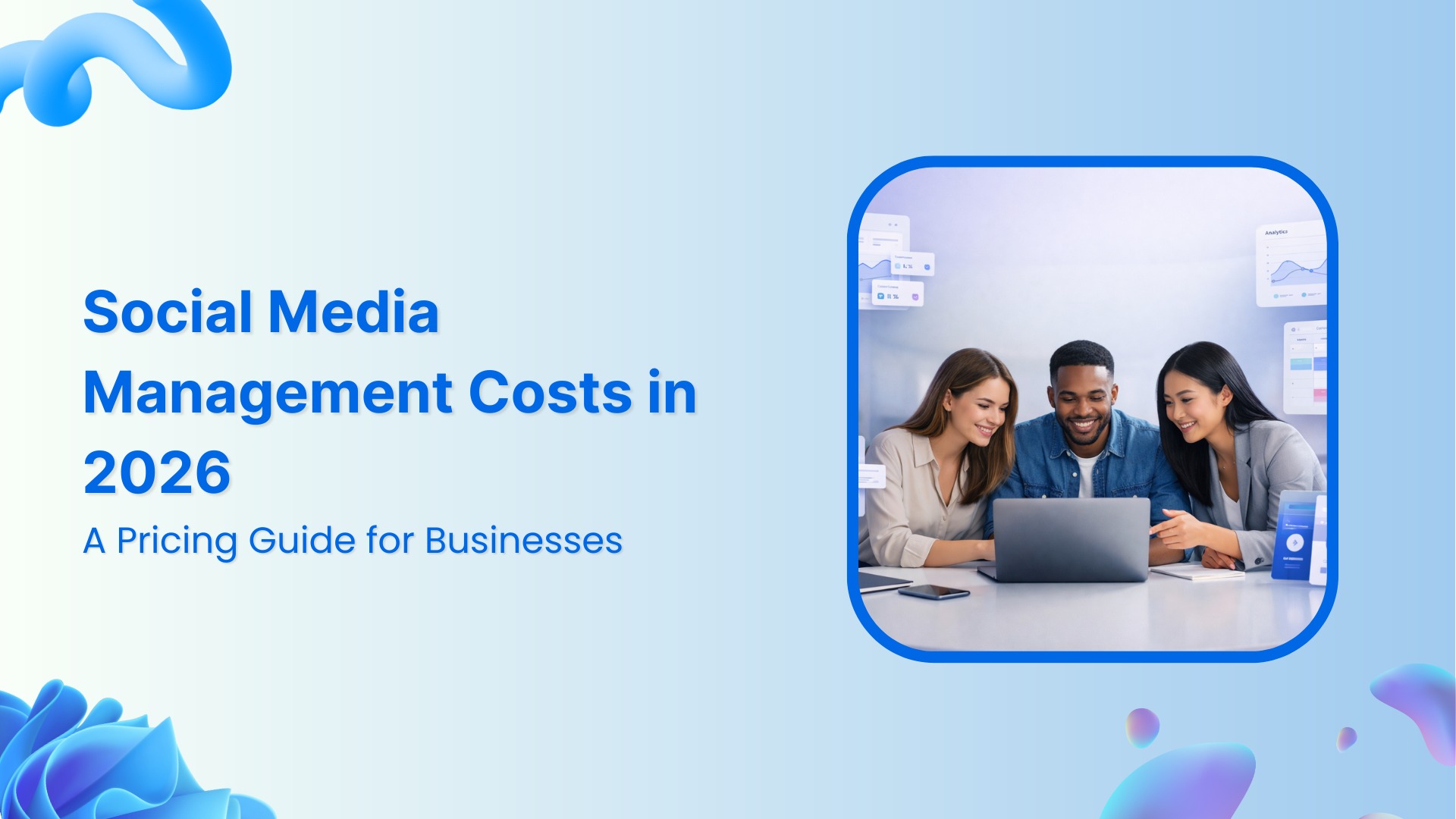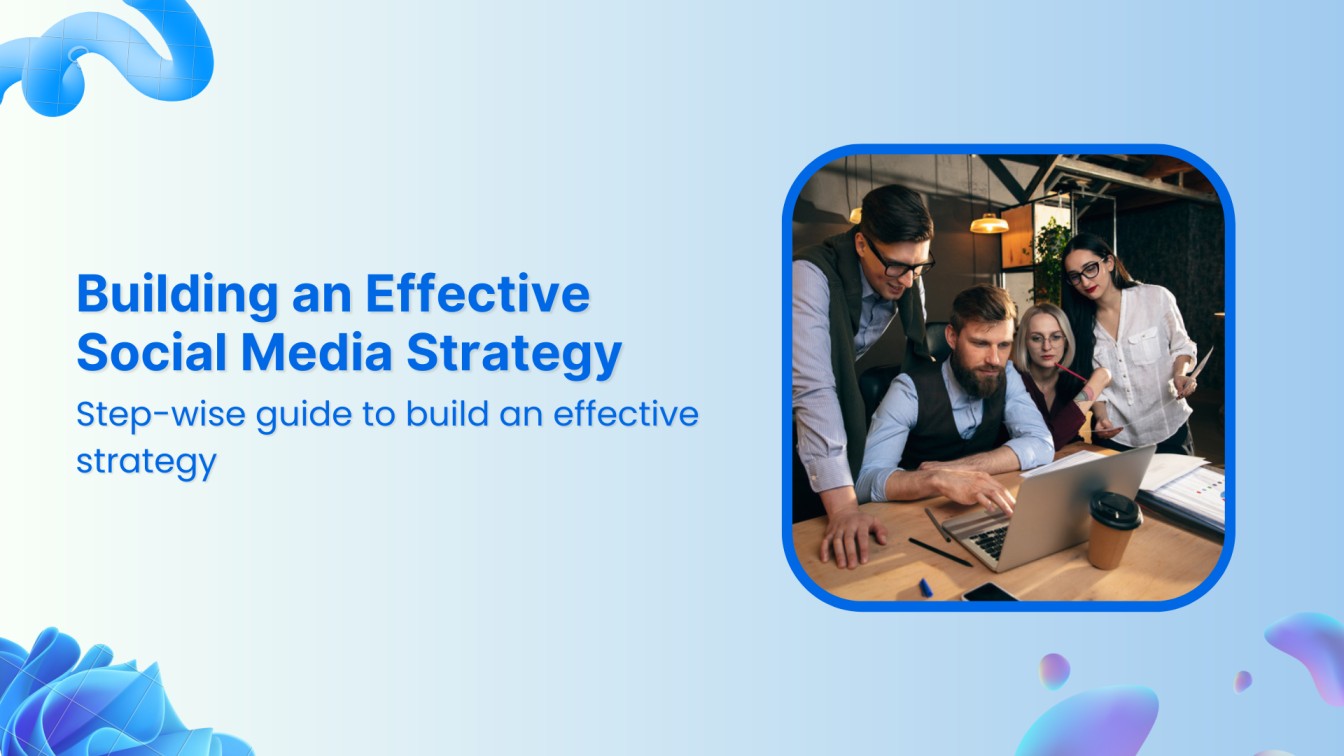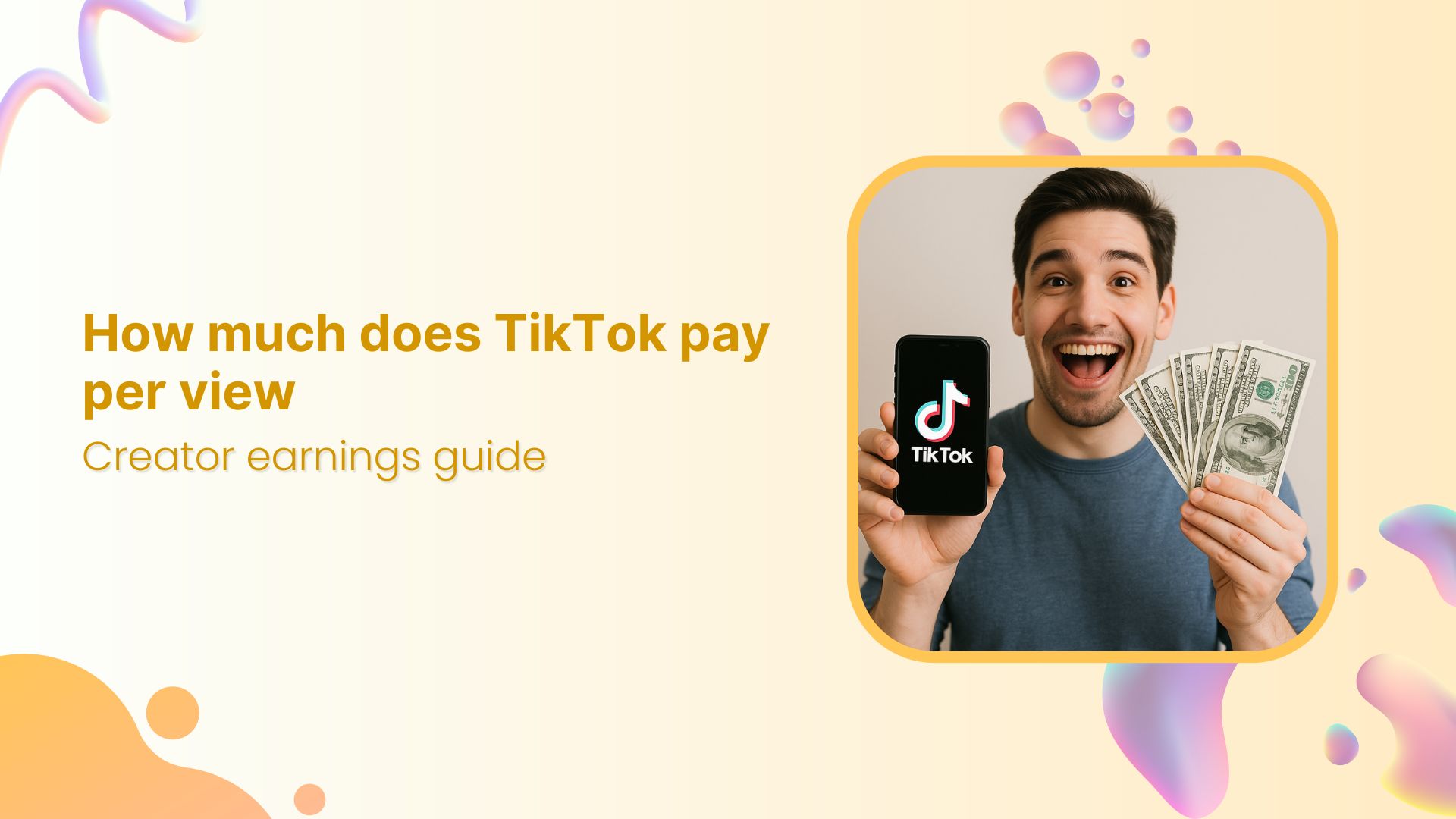Bulk-generate & schedule posts in seconds with Smart Scheduling. Try now!
How Social Media and SEO Boost Website Traffic Together?

Over the last ten years, negotiations as to whether Google uses social media signals for its rankings or not were held with variable success for both opposing sides. Still, research data confirm that social media and SEO are not independent digital marketing efforts.
Since 2018, when Google’s core algorithms started to be more centred around content, SEO experts have been highlighting the role of social media signals for SEO strategies.
Today, SEO experts claim that social media plays a vital role in helping companies get their content in front of a larger audience in the race to win the web. And while social media is not a search ranking factor and does not have a direct impact on SEO, the influence of social media on SEO cannot be overestimated.
Digital marketers who are both SEO and social media savvy demonstrate more successful results. SEO insights help determine the kind of content your audience on social media expects, while the insights from social media help produce more tailored articles for your blog.
In this article, we will find out how social media affects SEO, and how to harmoniously meld both for the benefit of your business.

Source: Growth-hackers.net
How are social media and SEO related?
Google, Bing, DuckDuckGo, and others, have varying relations between social media and SEO in terms of rankings. Google declared that social media signals have nothing to do with SEO, while Bing says the opposite — the pages with more social shares are ranked better.
As for the situation with Google, some analysis shows that there is still a connection between social and SEO. However, plenty of likes and shares on social media are more likely a consequence of the fact that the page is already in a high position. Relevant content and high positions of the page lead to a growing number of natural backlinks, but still, we cannot state that a page gets a good ranking because of multiple shares and reactions on social media. Website performance and SEO remain the key ranking factors.
Social media and SEO: real cases
Let’s look closer at some real-life examples of how social media affects SEO.
Wordstream’s highest-ranking pages on Google with above-expected CTRs had from 7.1% to 8.5% engagement rate when shared on Facebook. These blog posts had from 100,000 to 500,000 organic visits and had threefold higher engagement than their commonplace post on Facebook. A coincidence? Probably not.
Another example. According to Neil Patel’s observations, Hootsuite’s study proved that pages with a high number of social shares got a ranking boost of 22% over the course of the research. In addition, he tried searching brand names and found evidence that Google’s top results are business profiles on social media.
To be more precise, the other study reveals the overall correlation between Facebook, Google+, Linkedin, and Pinterest and high rankings. However, this correlation does not cause any dependency.
SEO keyword research, in turn, helps to create the social media content that your audience craves. For example, here at Contentstudio we always look at the demand of our target audience and use keyword research to create posts about what our users are searching for.
What SEO is bringing to the business
Most businesses know that SEO boosts a website’s search positions and visibility, so let’s delve deeper into some of these viable benefits.
1. SEO boosts traffic
SEO improves content relevance by identifying user intent and choosing the right keywords to bring quality and relevant traffic to a website.
It is imperative for SEO experts and web marketers to perform meticulous keyword research using an SEO keyword tool to analyze info like search intent, volume, and difficulty, and pick the best focus keywords. The time and effort spent on such research significantly improve organic search, which is one of the most vital components of the website’s performance.
2. SEO ensures seamless user experience
User experience is key in driving website conversions. A customer’s goal is to find exactly what they want in the most convenient and fastest way. SEO efforts make the website easily available for search engines and visible to prospects. Once they find a website, smooth navigation is vital.
If consumers cannot see what they are looking for, the performance of the website will suffer and its ranking will go down. Thus, quality SEO drives two vital website success factors. Firstly, SEO offers the most effective display and navigation. As a result, Google will treat a positive user experience as evidence of a website’s success and consider it a trustworthy source.
3. SEO increases lead generation
High website performance reached by SEO efforts opens the customer funnel and drives conversions and engagement.
According to a recently published study by Sistrix, the average click-through rate of a number one search result is 28.5%, while the second and the third result positions fall to 15% and 11% respectively.

Source: Sistrix.com
Being a leader in organic search drastically influences the high click-through rate and therefore brings you more visits and more prospects. Next, well-established website navigation with wisely arranged Call-To-Actions amplify the effect and drive lead generation even further.
4. SEO improves discoverability
The website’s credibility boosts the chances to be discovered in search engines. Such components as natural links, SEO-friendly text, and positive user experience help establish authority in the eyes of Google.
Building trust with SEO is a long-term strategy that requires a day-to-day commitment that will be rewarded over time. The first impactful outcome will be seen during the first year of the SEO implementation and will have an accumulative effect in the coming years if properly maintained.
It might be faster to get the first results with the help of an SEO company. Along with different approaches for boosting website results, they understand which techniques might fail or even harm your brand in the eyes of customers and search engines.
What Social Media is bringing to the business
Social media is not a trendy marketing tool, it is a business imperative for successful sales and marketing. More than a half of the world’s population uses Facebook and other platforms, and if you are not using social media as one of your key tools, you risk falling behind your competitors.
1. Social Media boosts brand identity
83% of Instagram users say they use Instagram as their primary buying platform. Some follow brands they already know and become brand ambassadors if the content the brand produces on social media resonates with their values and expectations.
Facebook, Instagram, and Twitter are must-have channels to reach your target audience and—if done professionally—build long-lasting relationships and increase brand awareness.
2. Social Media helps with the distribution and promotion of content
Exposure of your content to social media users provides a natural distribution and promotion of content without almost any effort from the content owner. If you provide consistent and high-quality content based on a well-developed content marketing plan, your social media posts will be shared by followers and get exposed to new audiences with “verified” labels, since people tend to have more trust in the content shared by their friends.
If your content is unique, trustworthy, and professionally wrapped following social media posts guidelines like the proper length of the post, coherent tone of voice, and high-resolution images, then it can be an all-mighty tool for the distribution and promotion of your website’s content.
3. Social Media engages with the customer and audience
Having your product or service live on Facebook or Instagram helps your business reach out to the target audience and engage with customers through two-way communication: from the audience to the brand and from the brand to its audience. Reputation management, case investigation, and crisis communication—all critical audience engagement points, violations of which can lead to negative brand perception and poor sales results.
Therefore, staying engaged in the conversation on social media 24/7 and not leaving your audience without a response improves engagement and loyalty.
For example, Nestle, a world-famous Swiss parent company of more than 8,000 brands around the world constantly faces hate posts on social media. The company uses social media monitoring tools to react fast to complaints and manage its reputation and customer engagement.
4. Social Media builds partnerships with influencers
Collaboration with the industry influencers (of course, if your product is really good) exposes your product to a vetted target audience through the influencer.
Related Read: How to Find Influencers to Promote Your Small Business in 2023
Such partnerships, along with the fact that your content is perceived as pre-screened by the influencer and thus considered more trustworthy, are a powerful tool in the social media strategy for businesses.
How to combine Social Media and SEO for better results
Social media and SEO can make a perfect match for your business in the following ways:
Increase website traffic
By increasing your website ranking you will boost its visibility and bring more organic traffic. This is what SEO is for. And how does social media affect SEO? Social media can complement SEO by bringing website traffic far sooner than search engines can. How?
If your website is brand new and you cannot yet boast a high ranking, a great number of social shares and exposure to a larger audience through social networks can attract more site visitors. And this is a perfect scenario for businesses that just started implementing their SEO strategy and want to tackle problems with poor traffic since it will bring fast results.
Social media is also a viable channel for reaching out to your target audience in a more active manner and acts as an additional way to let users know about your product if somehow they failed to become acquainted with it in Google search.
Action item: Develop a social media content plan to share on your company’s social accounts. In addition, try searching for the industry groups and communities and share pieces of relevant content with a link to your blog post there.
A useful tip in reaching out to more target audiences to bring to your website is getting the most active social media users on your team to become your brand ambassadors and share the content from their accounts. In the long run, those people can become thought leaders in the field and bring more traffic through their personal brands.

Analyze, Understand, and Improve Your Social Strategy
Stack your key social metrics against those of your competitors and make targeted steps towards social media success.
14 days free trial - no credit card requiredBoost content performance
High ranking positions and quality content will definitely increase the number of users wanting to share your content with friends. As a result, there is a higher probability that you will attract natural backlinks from other websites by means of social media and boost the website’s position in the search ranking. So, if you want to win the web, be ready to combine SEO and social media.
You put in so much effort and so many resources to produce quality content for your website, but if you do not share it on social media, your content just stays in one place. Better exposure to the target audience amplifies the chances to bring users that are genuinely interested in your content. And eventually, these users will be more likely to follow the call to action and drive your content item’s conversion rate and its overall performance.
Action item: Before you get your blog posts published, develop a content distribution plan. Decide which social media platforms to share your content with, with a direct link to a blog post. Define the frequency of posting. For example, if you have an analytical blog post with collected data, try splitting this information into portions and make a series of social media shares unveiling the data coherently, one post after another.
Infographics with data, catchy images with charts, quotes, or key takeaways from your blog post will only boost the content performance. When you create the images for your blog posts, keep the dimensions that will be displayed well on social media from the very beginning.
Bring more links
Backlinks are an important part of SEO, as they provide search engines with proof that your content is valuable for users. Quality backlinks are important for improving your domain authority, and social media is your ally in getting those backlinks. The more people are exposed to your content, the higher the chances that some of them will be willing to share it with their followers or friends.
As a side effect, content promotion on social media makes your content more visible and increases the chances that other websites, like industry bloggers, will put a link to your website with no effort on your part.
You may eventually find that other websites begin to approach you for exchanging links, ABC link building, and other forms of link exchange.
Action item: Make your content distribution on social media as wide as possible. Follow your industry media outlets’ pages on social media and interact with their posts so that they start following your company page.
Ensure the consistency and quality of your posts and they will soon be shared by these media outlets as a trustful source, getting you a direct backlink to your blog post. Follow the same scenario with industry communities, associations, partners, and others.
Build trust
Taking care of SEO helps you build trust in your brand among your target audience. Consumers are overwhelmed with information. It is a hassle for them to pick the best choice and they are very cautious about what companies they buy from. Therefore, your website authority and top search positions, complemented by mature social media profiles, will serve as a green light for users to have trust in your brand.
Action item. Invest in your social profiles. Stand out from the crowd by humanizing your brand—communicate on social media from a human standpoint and interact with those who are interested in learning more.

Build Trust with Curated Content
Discover, brand, and share the best content with your audience. Establish yourself as an authority and turn leads into loyal customers.
14 days free trial - no credit card requiredGenerate new content ideas
In addition to keyword search analysis useful for SEO purposes, social media can also help you come up with new content ideas.
Action item: Get your social media and content teams aligned and cooperating. Let the team members responsible for social media collect the questions, comments, and topics of popular posts and pass them to content writers.
This way you will ensure you respond to the most-awaited questions in the content you provide.
As a result, your content is more likely to be shared and act as visible proof that the content on your website is valuable improving your domain ranking as well).
Social Media and SEO are beneficial together
There is no evidence of a direct impact of social media on SEO. Indeed, social signals play some role in the success of SEO, though the effect is more indirect. A vast number of studies have been conducted to provide evidence to show that a correlation between social media and SEO exists, so smart brands invest time and resources both to build their domain authority to improve search engine ranking, and to build brand awareness in key social channels.
So, the key takeaway for digital marketers is to think about social media when designing their SEO strategy. High exposure on social media will engage more people, and once these people love your content, search engines will gratify you with higher rankings.
Also Explore: TikTok SEO: How to Rank High on TikTok
Recommended for you

How social media AI image generation saves time & inspires creativity

Social Media Management Costs in 2026: A Pricing Guide for Businesses


Powerful social media management software
7-day free trial - No credit card required.

